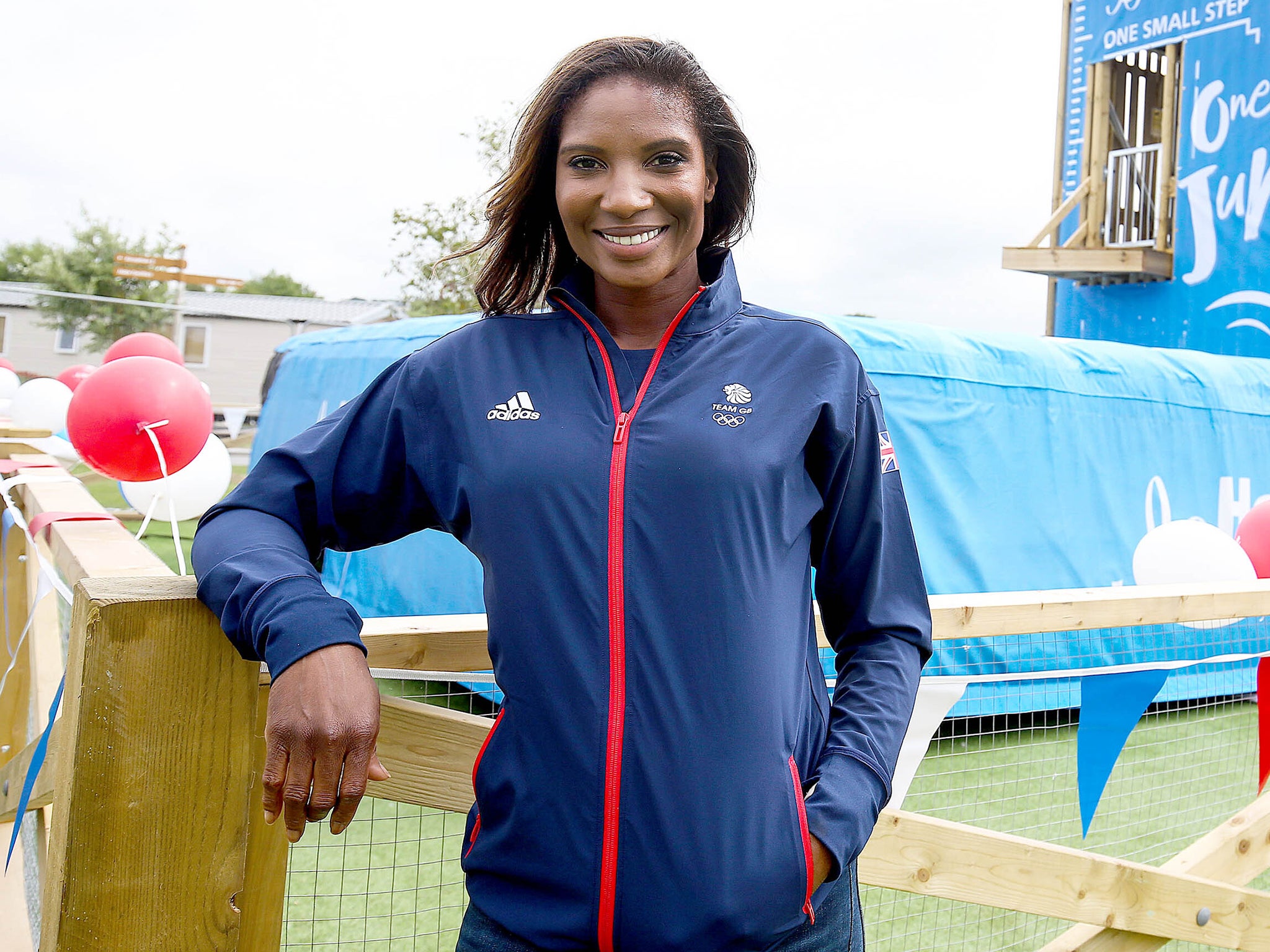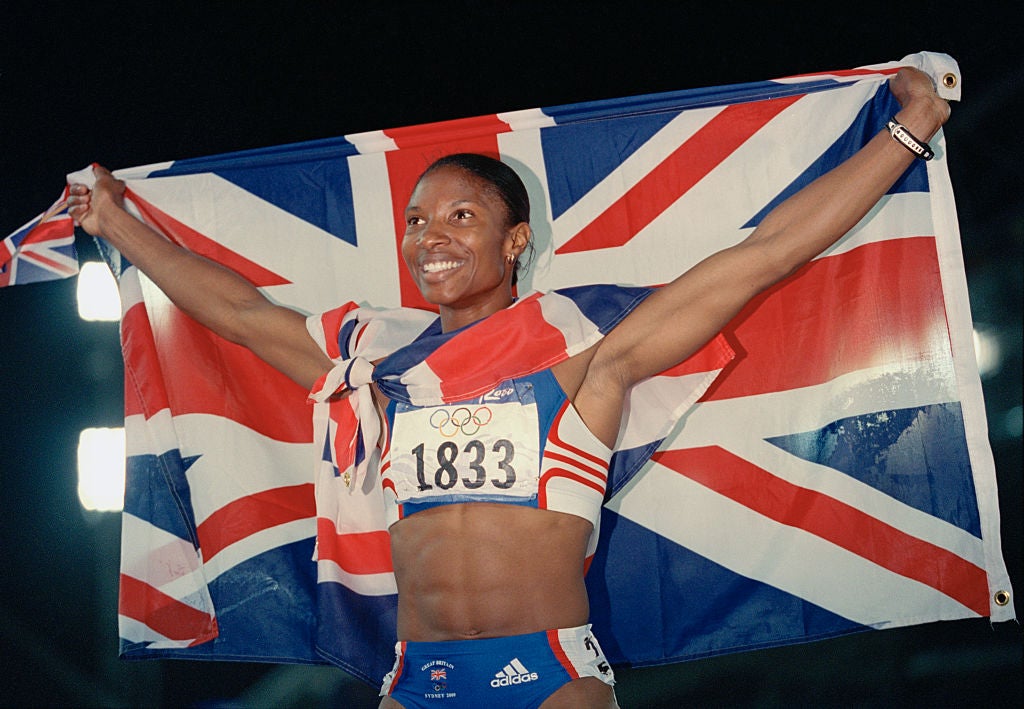Dame Denise Lewis ‘blown away’ by New Year Honour
Lewis was president of Commonwealth Games England when the event was held in Birmingham and the West Midlands this summer, 22 years after her gold medal at the 2000 Sydney Olympics

Your support helps us to tell the story
From reproductive rights to climate change to Big Tech, The Independent is on the ground when the story is developing. Whether it's investigating the financials of Elon Musk's pro-Trump PAC or producing our latest documentary, 'The A Word', which shines a light on the American women fighting for reproductive rights, we know how important it is to parse out the facts from the messaging.
At such a critical moment in US history, we need reporters on the ground. Your donation allows us to keep sending journalists to speak to both sides of the story.
The Independent is trusted by Americans across the entire political spectrum. And unlike many other quality news outlets, we choose not to lock Americans out of our reporting and analysis with paywalls. We believe quality journalism should be available to everyone, paid for by those who can afford it.
Your support makes all the difference.Denise Lewis says becoming a Dame in the New Year Honours List feels “like going full circle” after her Olympic gold medal-winning success in Sydney 22 years ago.
Lewis overcame injury problems to top the podium in the heptathlon at the Games in Australia in 2000, and says she has drawn strength from that success in moments of adversity in her life ever since.
“You always hold that moment in time within you,” she told the PA news agency. “When things aren’t going according to plan or your confidence is low in life, you can access that moment to give you that fuel that you need to think ‘actually, I’ve accomplished so much’. I can get through because I have those coping strategies.
“Sydney for me was just epic on so many levels. It had that ripple effect on those around me, my club Birchfield Harriers. You just can’t quantify how a performance that you think is solely for you can affect others.
“I was endeared into the nation at that time, and it’s almost like going full circle having this damehood 22 years after that performance. It’s very emotional.”
Lewis, who turned 50 earlier this year, said she was “blown away” when she received notification of the honour.
“I can’t even process it, but I haven’t stopped smiling since I heard the news,” she said.
“It’s an incredible honour. I’m just trying to take it in and its enormity. I recognise that I’m one of very few women in athletics that have received a damehood. I’m just so proud and incredibly beside myself.”
Lewis was born in West Bromwich and first came to prominence at the Birchfield Harriers club. Her first major international breakthrough came at the 1994 Commonwealth Games in Victoria, Canada, where she claimed a gold medal.
“That was really a turning point,” she said. “That was like ‘woah - that really happened to you’. Fast forward from that point the mission was ‘could you be an Olympic gold medallist?”’
Lewis was the only British woman to win a track and field medal at the Atlanta Olympics in 1996 where she claimed a bronze, in what was a hugely disappointing performance overall for Team GB and one which prompted a root-and-branch reform of the system. It ultimately led to the National Lottery funding system that remains in place today.
Silver medals followed for Lewis at the World Championships in Athens and Seville in 1997 and 1999 respectively, but her hopes of going one better in Sydney were diminished by injury.

“it’s just a whirlwind to how I actually got on the start line. Everything was stacked against me,” she recalled.
“If you were speaking to my team, they could not predict a win. But I am mentally tough and that is what got me through.
“Sydney has got to be the pinnacle. My life did change. It changed massively, and for the better, absolutely.”
Lewis, who was made an OBE in 2001, remains a familiar face in track and field long after her retirement as part of the BBC’s presenting team at major events. She is also the president of Commonwealth Games England, and she sees her mission now to be to widen access to sport.
“It’s important for people entering sport to understand that they have a place, no matter what your background is, your ethnicity, your ability, there is a place for you within sports and the Commonwealth Games gives that platform,” Lewis said.
“We have to be far-reaching. I think my role on the board is to keep reminding us as a body, that we’re in it for everyone, to make sure that they have the best opportunities to compete at the highest level, and how the ripple effect of that success impacts other people.
“The more success we have, and the more representation we have from different communities, means our reach is much, much bigger.”
Lewis could not have been happier to see the Commonwealth Games staged in Birmingham and the West Midlands in the summer.
“I was confident (the region would embrace the event). Brummies like a party, they like a good shindig, we just have to be invited,” she said.
“So having the invitation and getting it across the line and being awarded the right to host was incredible. I did know that they would do it well. The appetite was there. It was the right time post pandemic apprehension.
“People were willing to get out and get involved and get stuck in. It was a magical time for the region and hopefully the legacy from that will be more sports, more action, more people understanding what Birmingham is about and the Games really put us on the map both domestically and internationally.”
Lewis was part of the presentation team last month for Birmingham’s successful bid to host the 2026 European Athletics Championships.
“I’m just psyched,” she said. “Alexander Stadium, my track as a child is coming to the fore and coming into its own. It’s a fantastic facility, and I’m sure we’re going to host another really good championships when it arrives.”



Join our commenting forum
Join thought-provoking conversations, follow other Independent readers and see their replies
Comments